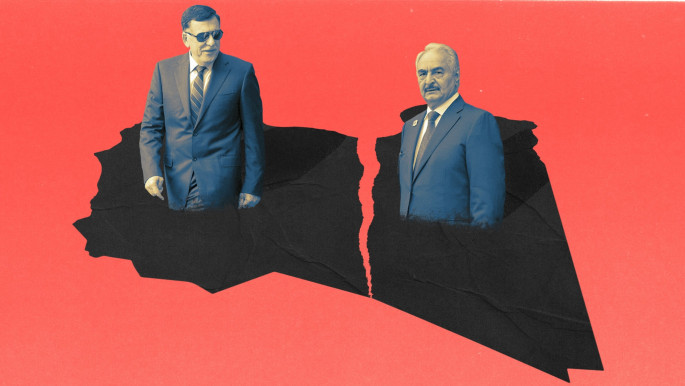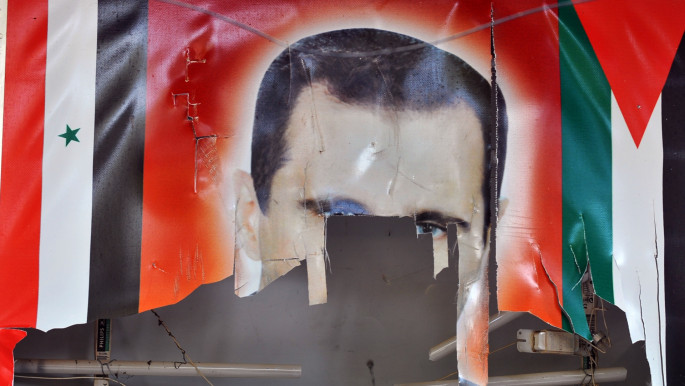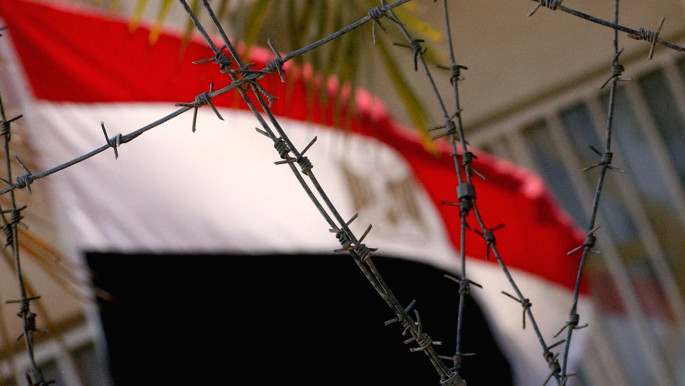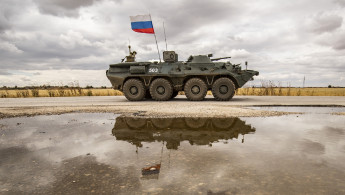Warm waters at last: Russia's expanding military footprint in the Middle East
In recent weeks, it began negotiating the establishment of new concessions from the Syrian regime on its indefinite military presence in that country and has also become more directly involved in the civil war tearing Libya apart.
Libya
In late May, Russian-built MiG-29 Fulcrum air superiority fighters entered the conflict in Libya. Russia has deployed at least 14 unmarked MiG-29s along with Su-24 Fencer bombers into eastern Libya, where it supports the Libyan National Army (LNA) faction commanded by warlord Khalifa Haftar against the UN-recognised and Turkish-backed Government of National Accord (GNA) in Tripoli.
Russia previously sent Wagner Group paramilitary fighters to the Libyan conflict in support of Haftar and reportedly helped the Syrian regime move some of his paramilitaries to fight with the LNA.
The deployment of these aircraft followed a notable Turkish-backed GNA victory over the LNA, the capture of the western LNA-held al-Watiya airbase. The timing of the deployment suggests that Russia wants to send a message to Turkey to stop backing additional GNA offensives against the LNA, which called for a truce in late April after suffering significant battlefield setbacks.
 |
Russia is increasing its presence in the Middle East through the deployment of its armed forces, the sale of arms and the establishment of new military bases |  |
While Haftar is unlikely to launch another siege of Tripoli anytime soon, even with Russian air support, Moscow's intervention could well stop Turkey in its tracks and ensure that Haftar doesn't suffer any more significant defeats. Also, by bolstering Haftar, Moscow could secure a substantial military foothold in Libya with its vast Mediterranean coast of a kind it could only hitherto dream about.
"Backing the LNA and backing Field Marshal Haftar, it really isn't about winning the war, it's about developing strongholds," said the deputy director of the US Africa Command's Intelligence Directorate Brigadier General Gregory Hadfield.
 |
|
| Read more: Is Libya on the road to de facto partition? |
"If Russia secures a permanent position in Libya and, worse, deploys long-range missile systems, it will be a game changer for Europe, NATO and many Western nations," he went on to claim.
Long-range missiles could include the deployment of sophisticated S-300 or S-400 air defence systems. Russia deployed S-400s system in western Syria, creating a very formidable Anti Access/Area Denial (A2/AD) zone over that key region and also provided S-300s to the Syrian military.
If it deploys such systems to Libya it could potentially establish a similar zone over swathes of the Mediterranean, which could have major strategic ramifications beyond Libyan shores.
Whatever is ultimately the case, Russia's presence in eastern Libya is undoubtedly far more substantial than it was just a few weeks ago.
Syria
For generations, Russia lacked access to warm water ports and coveted areas like the East Mediterranean or the Gulf. In the late 1940s, Stalin sought to annex parts of Iran and Turkey into the Soviet Union, which is one reason both those countries became aligned with the West in the Cold War. Turkey became one of the first members of the NATO alliance and the Shah's Iran became a close Western ally and arms importer.
 |
Since its intervention in the civil war in 2015, Russia has deployed forces at air and naval bases in western Syria giving it a very valuable foothold in the Eastern Mediterranean |  |
Since its decisive intervention in the Syrian civil war on the side of the regime of President Bashar al-Assad back in September 2015, Russia has deployed forces at air and naval bases in western Syria, giving it a very valuable foothold in the Eastern Mediterranean.
Russia leased the Hmeimim airbase in Latakia and the naval base at Tartus for the next 49 years from Damascus, in a deal that can be extended even beyond 2060.
There are additional signs that Russia has no intention of vacating Syria anytime soon. In May, the Russian Interfax news agency reported that Russian President Vladimir Putin "signed a directive tasking the Defence Ministry, in cooperation with the Foreign Ministry, with holding negotiations with Syria on transferring more real estate and water territory to the Russian military's possession."
 |
|
| Read more: Charting the dramatic collapse of Syria's national currency |
Moscow is also investing millions for the modernisation of the Tartus navy base. According to Yuri Shvitkin, the vice chair of the Russian state Duma defence committee, Russia also wants to separate Khmeimim from the adjacent civilian Bassel Al-Assad International Airport.
Aside from supporting Assad's various campaigns with deadly air strikes – which have destroyed numerous hospitals and medical facilities in Aleppo and Idlib – Russian Military Police also routinely patrol parts of Idlib and Syria's northeast with Turkey.
In the Kurdish-majority northeast, Russia is reportedly building a new base in the village of Qasr Deeb near the Turkish border. The Russians attained a significant foothold in northeast Syria last October after US forces withdrew from several areas along the Turkish border and may well increase its presence in that strategically important region, which borders both Turkey and Iraq, in the foreseeable future.
 |
Moscow sold Egypt more weapon systems in the 2010s than in any period since Cairo established close defence ties with the US following the Camp David peace deal |  |
"The Russians have been roaming almost freely in our region," a senior official of the Kurdish-led SDF told Voice of America this month. "Their ultimate goal is to push the Americans out of northeast Syria."
Also, after delivering MiG-29s and Su-24s to Libya through Iran and Syria, Russia reportedly supplied the Syrian Air Force with additional MiG-29s, according to the Syrian regime's SANA mouthpiece. MiG-29s have long been the most advanced warplane in the Syrian Air Force's largely antiquated arsenal. After years of war, many of them have been showing increasingly visible signs of deterioration.
Egypt
In addition to these significant military deployments, Russia has also made very significant and tangible progress in increasing its military cooperation with Egypt, securing the most significant military partnership that has existed between Moscow and Cairo since the 1960s and early 1970s.
 |
|
| Read more: Egypt's relentless war on journalism persists amid pandemic |
Moscow sold Egypt more weapon systems in the 2010s than in any period since Egypt established close defence ties with the United States following the Camp David Israel-Egypt peace deal in 1979. Russian hardware bought by Egypt's autocratic ruler Abdel Fattah el-Sisi to date include a fleet of MiG-29s, KA-52 attack helicopters and an advanced variant of the S-300 missile system.
Egypt also intends to buy 20 advanced Su-35 air superiority fighters for $20 billion. That deal even led the US to warn Cairo that it could become subject to CAATSA sanctions that aim to punish any country that buys Russian military hardware.
Egypt and Russia have also conducted joint naval exercises in the Mediterranean beginning in 2015. In 2018 and 2019 both countries also held joint air defence exercises. The first in Russia and the second in Egypt, underscoring the deepening defence ties between the two countries.
In late 2017, Moscow approved a draft agreement with Cairo that would authorise it to base warplanes in Egypt. The deal also permits Egypt to base its warplanes in Russian airbases. US-built Egyptian F-16s showing up in Russian bases would certainly be an unprecedented sight.
 |
Russia has established a forceful presence in the Middle East, North Africa and the East Mediterranean in just under half a decade |  |
Basing its warplanes on Egyptian soil could also prove advantageous for Russia's increased role in Libya since the bulk of its supporting aircraft would likely be safer based in Egypt than in Libya.
While a lot of these projects remain goals for now, Russia has established a robust and forceful presence in the Middle East, North Africa and the East Mediterranean in just under half a decade.
With no indications that it intends to draw down anytime soon one can expect Russia to further consolidate its position in these important regions.
It will do so through interventions in local conflicts, the sale of arms to its clients and access to, and leasing of, an increasing number of military bases.
Paul Iddon is a freelance journalist based in Erbil, Iraqi Kurdistan, who writes about Middle East affairs.
Follow him on Twitter: @pauliddon







 Follow the Middle East's top stories in English at The New Arab on Google News
Follow the Middle East's top stories in English at The New Arab on Google News


